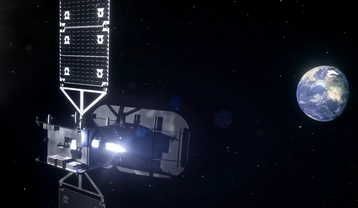Astranis is to deliver two broadband GEO satellites to Mexican communications provider Apco Networks.
Founded in 2015, California-based Astranis develops small – around 350kg – geostationary communications satellites that are much smaller than traditional GEO machines, which can weigh multiple tons.
Astranis this week announced it is partnering with Apco Networks (also known as AiTelecom) to launch two MicroGEO satellites dedicated to Mexico next year.
Astranis said the two machines will become the first Ka-band satellites ever dedicated to Mexico and will connect up to five million people to affordable broadband Internet.
“We have been looking for the right partner to address this opportunity, and today, we are excited to announce that we have found them,” Astranis said. “Our Astranis satellites will allow Apco to provide a managed service for many different kinds of connectivity — WiFi sites, direct-to-enterprise, and backhaul for rural cell sites.”
Astranis CEO John Gedmark told TechCrunch that the company is also looking at plans to launch additional satellites to serve the remaining 33 million people in Mexico who will still be without reliable Internet.
“We’re definitely looking at launching additional satellites to follow these first two,” he said. “That’s the benefit of the Astranis model. We can deploy initial capacity quickly and then add more and more over time as demand grows.”
AiTelecom/APCO Networks is a satellite and terrestrial communications provider in Mexico.
“We are proud to be part of Mexico's history,” the company said on LinkedIn.
The news comes after Astranis suffered a critical issue with its debut satellite. In April this year, the company successfully launched its first commercial satellite, Arcturus, into orbit to provide Internet to Alaska for local telco Pacific Dataport.
The machine was set to offer 7.5Gbps of throughput in the Ka-band. However, an issue with the system that controls the satellite’s solar panels means it doesn’t have enough power to provide constant connectivity services.
Though the company is in control of the satellite, Astranis estimates it can only get six to 12 hours a day of service from the spacecraft. The company said the malfunctioning spacecraft could still be used as an in-orbit test bed or another alternative mission.
While a replacement machine is due to launch in 2025, the company aims to supplement the compromised satellite later this year with a UtilitySat; a multi-mission commercial microGEO satellite the company said was capable of conducting multiple fully-operational broadband connectivity missions.
Astranis is to also launch and operate a new small broadband GEO satellite in 2024 that will provide connectivity over the Philippines. The company is partnering with local ISP HtechCorp’s satellite subsidiary Orbits Corp.
US-based mobile satellite connectivity specialist Anuvu (again for two machines) and Peruvian cellular backhaul provider Andesat have also ordered satellites from Astranis.







